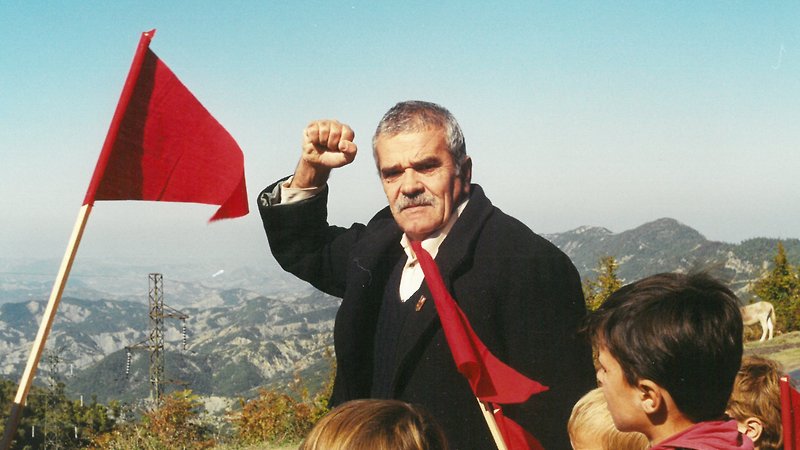
Screened as part of NZIFF 2001
Slogans 2001
The stultifying idiocy of hard-line Communist rule is adroitly mocked in Slogans, an affecting examination of the battle between form and content in an Albanian village in the late 70s. The hypocrisy of collective rule is laid bare when a handsome young biology teacher joins the staff at a rural… school only to discover that sensible human behaviour runs counter to the hermetic fiefdom built by local officials…
Arriving from the capital, Tirana, to take up his post in the poor, rock-strewn mountains, André is given his pick between two slogans – ‘Hail the Revolutionary Spirit’ and ‘American Imperialism is a Paper Tiger’ – as a gesture of welcome. André couldn’t care less and doesn’t understand why choosing the shorter one elicits immediate emnity from Diana, the fetching French teacher.
André’s slogan-obsessed young students firmly approve of his choice – but not for ideological reasons. It turns out each class is required to spell out their assigned slogan along a dirt slope using whitewashed rocks and stones pounded into the earth. The actual meaning of the slogans is irrelevant: the number of letters, and hence the amount of labor required, is primordial.
When a Politburo official is slated to travel past the village, the demanding local party rep goes into slogan-maintenance overdrive, with poignant results. (Not knowing the Vietnam War is over… a loyal constituent who lives outside town is crestfallen to discover that his lovingly maintained ‘Vietnam Will Win’ slogan is obselete.)
The absurdity of Albania’s former regime rings true throughout via examples that are both hilarious and heartbreaking. Educated André’s friendly and helpful disposition is a handicap in the rocky enclave, where the local leaders also seem to have rocks in their heads. — Lisa Nesselson, Variety, 15/5/01
In Albania at the time there were all kinds of pompous ceremonies organised when members of the Politburo went past in their cars, as the Party Secretary does in the film. Everything was done to make it look spontaneous, but of course it was nothing of the sort. People were forced, often under threat, to participate. It was an elaborate mechanism put in place by different Party factotums so that the members of the Politburo would believe what they saw – and they did! It’s absurd. But such absurdity isn’t peculiar to Communist countries. The film is not putting Communism on trial, but all ideological dogma. — Gjergi Xhuvani